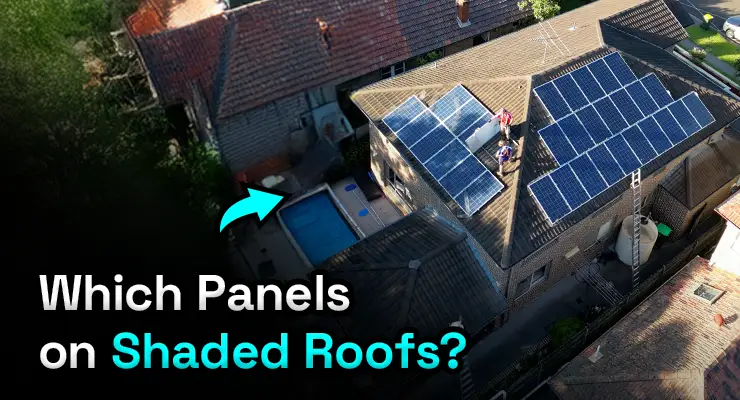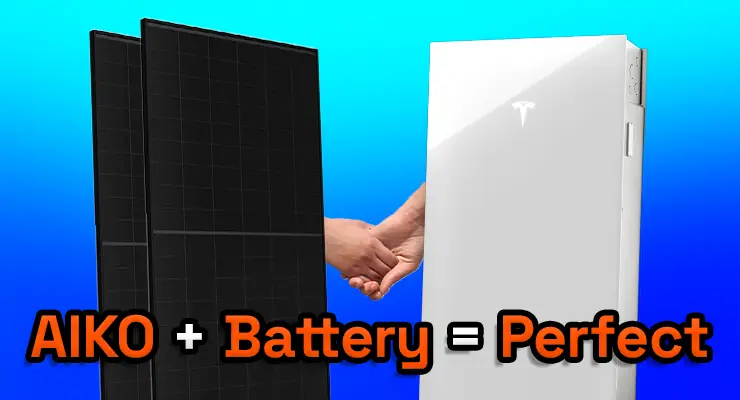
Fast read
Solar systems may make noise for various reasons, including the type of inverter used, loose panels or cabling, poor quality installation, or the presence of birds or other animals.
Inverters, particularly modified sine wave inverters, can make a humming or buzzing sound. In addition, loose panels or cabling can cause noise if they move in high winds or are improperly secured.
Poor installation, such as using low-quality racking or insufficient brackets, can also lead to noise. Finally, birds or other animals on the roof may cause noise if they move around or build nests on the panels.
Noise issues can often be resolved by addressing the underlying cause, such as installing a better-quality inverter or securing loose panels.
My solar system makes noises – is that normal?
Solar systems are becoming much more common globally, and this is especially true for Australia. But, like all innovative technologies, people will make assumptions and ask questions about how these new systems work. Regarding solar systems, some frequent questions are how they will impact a home and its neighbourhood. One common question that incorporates this concept is whether solar panels make noise.
So is it a yes or a no?
The answer to this question varies depending on several factors. Still, the clear-cut and straightforward answer is YES if you have a string inverter and NO if you use microinverters or optimised systems.
A string inverter makes noise (particularly modified sine wave inverters), while solar panels don’t. The reason for this is unlike the inverter, solar panels have no moving parts. So unless there are problems with the structural integrity of the panels, there is no way for them to make any noise.
What can cause a solar system to make noise?
A familiar noise that many solar homeowners report is a humming sound. Inverters sometimes make a quiet humming noise throughout the day. But often, this noise won’t be noticed since it’s not louder than typical household sounds and outdoor noises.
If the humming gets louder and changes to a buzzing sound, it may mean the inverter needs to be checked. Some inverter models also contain fans.
If the inverter has been placed in a location with direct sunlight or a large amount of energy is converted in the middle of the day. The fans may be running strongly to prevent the inverter from overheating.
As your solar panel system is not producing electricity at night, the solar inverter will not make any noise. Therefore, even if the unit is installed near a bedroom window, there should be no issue if the bedroom is not extensively used during daylight hours.
We recommend not installing the inverter near any bedroom window to avoid issues.
If you believe your inverter is the reason for your solar power system producing noise, several shielding and noise-reducing options can also be installed. One would be to put a shade over the inverter if the unit gets exposed to direct sunlight.
The shade cover will ensure the inverter works less complicated to cool down and be less noisy.

Loose panels or cabling
The second way a solar panel may make noise is through loose cabling or loose panels. The connecting cables run between each solar panel and then into your roof.
If cabling or any panel have not been professionally installed and secured. High winds can move them about and bang on the roof. If you think you notice this, make sure you contact an installer for investigation.
Rattling racking
The third way a solar panel system can make noise is through low-quality installation or short-change in the racking. If you, as a homeowner, decided to choose a cheaper solar system installation, your solar installer may have taken shortcuts.
In this case, if the racking has not been properly screwed in or they reduced the number of brackets. The system should be properly fastened to the timber rafters. On windy days it is then possible that the racking moves which can cause a rattling sound from your roof.

Birds and other animals can affect the solar panel system
The final way a solar system can produce noise is through birds and other small animals. If your roof only allows solar panels to be installed at an angle called a tilt frame rather than flat on the top, this can become a welcome shelter for birds and other animals.
If your solar system has become the home to a flog of pigeons, then not only can bird droppings reduce the efficiency of your solar panels. However, the constant movement of these animals on your roof may cause noise.
Therefore you must organise a maintenance check on your solar system every few years to check on all the abovementioned issues.
So do solar panels make noise?
Creating a quiet and efficient solar system is crucial for a seamless and eco-friendly energy experience. The acceptable noise in a solar panel setup should primarily come from the inverter, responsible for converting solar-generated DC into usable AC for your home.
Inverters ideally operate quietly, with minimal noise, showcasing technological advancements in solar energy systems. Modern inverters come equipped with noise reduction features, ensuring subtle and unobtrusive operational sounds, and preserving the peace in your living space.
When selecting a solar inverter, prioritise models that emphasise noise reduction as a key feature. These inverters use advanced acoustics and insulation materials to mitigate any potential disturbances caused by the energy conversion process.
Choosing a reputable brand known for technological innovations ensures not only a quiet operation but also the longevity and reliability of your solar setup. This focus on reduced noise aligns with sustainable living and eco-conscious practices, contributing to a positive solar experience.


